Tanzanian Project Hopes to Build Dispensary
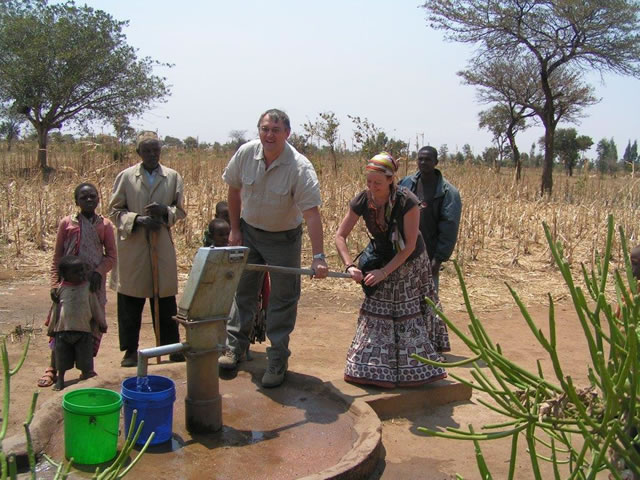
Richard and I live in Wincanton but have been visiting Ughandi B for the past ten years, since our meeting with a young man from the village. The area is remote and conditions are semi dessert. In 2005 we set up what was then known as Ughandi B Water Project and over a period of three years raised enough money to supply two boreholes. We work with the community and leadership to ensure that all projects are sustainable and to date have six separate projects running in the village.
So far the Ughandi B Village Project has been able to supply the following:
- Two deep boreholes
- Pit latrines at Muhuvi Primary school
- A tailoring group with sewing machines
- A community building used by school children and other groups
- A rain harvesting system
- A small chicken farm
However, Ughandi B is situated 45 kilometres from the nearest town and hospital and few have any means of transport other than to travel on foot or a bicycle at best. There are no tarmacked roads, only dirt tracks full of ruts that regularly get washed away by flash floods.
Imagine this journey on a bicycle or cart if you're lucky enough to have one when you go into labour. Not something that we in the west have to worry about. Children are still dying from diarrhoea or malaria because they don't have even the most elemental medicines close by.
Two and a half years ago the community entered into a scheme to build a dispensary in partnership with the Tanzanian government. The scheme requires that the community a) builds the dispensary up to its roof support beam and b) builds two houses for workers to live in, also up to the support beams. Once all builds are at the support beam stage the government completes the project.
When Richard and I visited the site two years ago all they had towards the build were a few concrete blocks which had taken them six months to purchase. Bear in mind that cement is expensive and then they have to pay for any materials to be brought 45 kilometres to the village.
During August 2013 we sent our representative to Ughandi B to see how far they had progressed with the build and here are some photos he came back with.
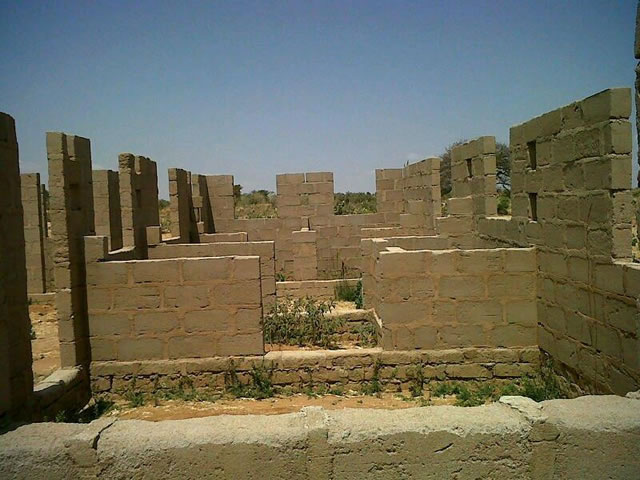
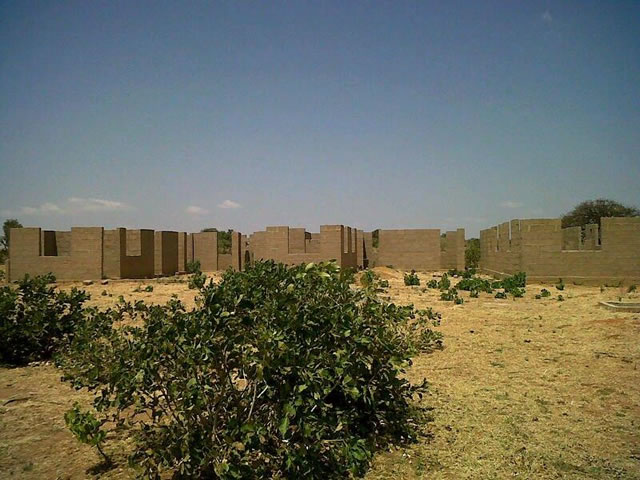
As you can see this is a huge building and quite an undertaking for a village of subsistence farmers who have no other income and are literally living hand-to-mouth.
To finish all buildings to the standard required by the government it's going to cost £2,500 for remaining work on the dispensary and £7,500 for both houses. The chances are that the government will put a time limit on this and if not met then the offer will be taken away from Ughandi B and given to another village.
Our project does not have £10,000 in its account and so our hands are tied and yet we can see how the community and indeed others close by could benefit from such an amenity. People who, when they become ill, simply have no choice but to pray in the hope they'll get better.
What we are asking for is donations, pure and simple. For any local business, charity, and organisation or individual to donate whatever they can to help us raise what is needed. Every penny donated goes directly into our projects. Our time is given freely and visits to the village paid from our own pockets.
Donations can be made payable to Ughandi B Village Project
Lloyds account number: 28724760
Sort code: 30-65-21Contact:
Please visit our web site for more information: www.ughandib.org.
Below are some of our projects to date for everyone to see that we genuinely do work with these people to raise their standard of living.
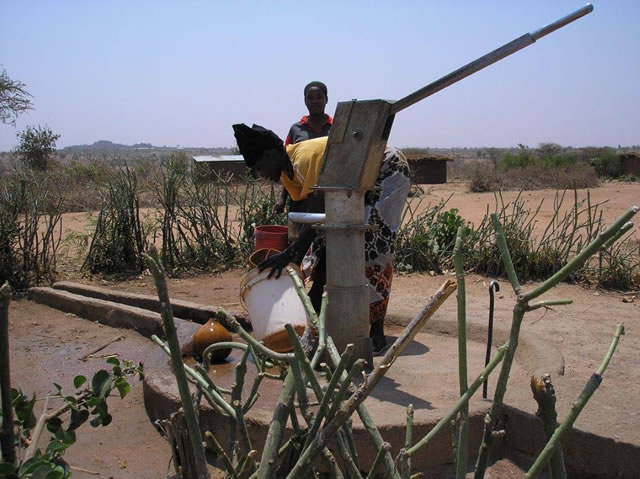
Both boreholes installed in 2008 have recently been reinstated due to pipework rusting causing contamination of water. The area has a high mineral content which could be the cause and so recently we have upgraded to steel pipes. All work is carried out by the local water authority.
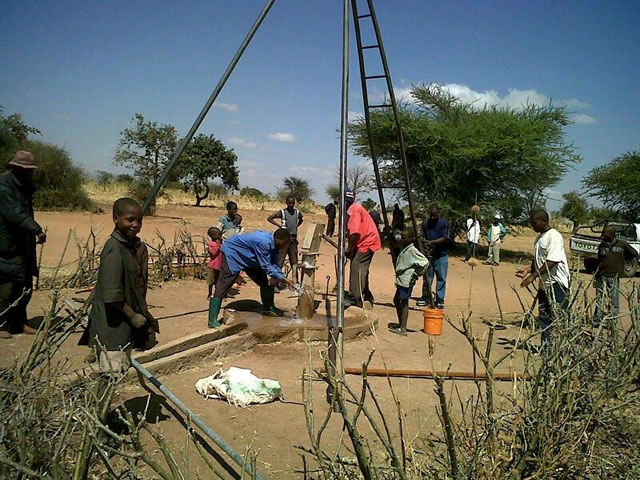
Here we see recent work on Maliasili borehole which took place during August 2013.
Our most recent project, the Community Building, has become several mini projects in itself.
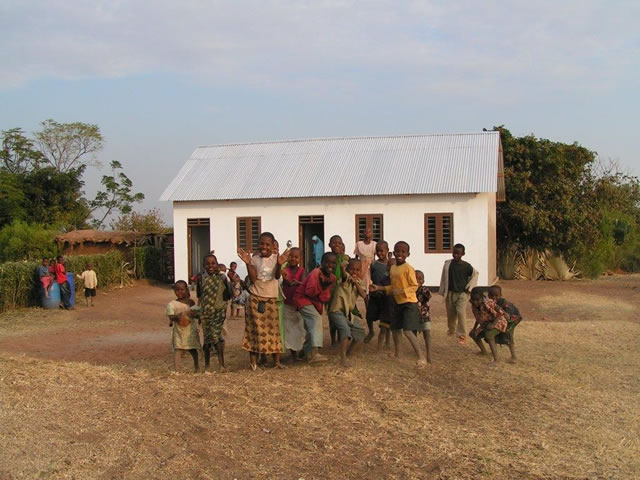
Divided into three sections, it houses the tailoring group, who have been busy making school uniforms.
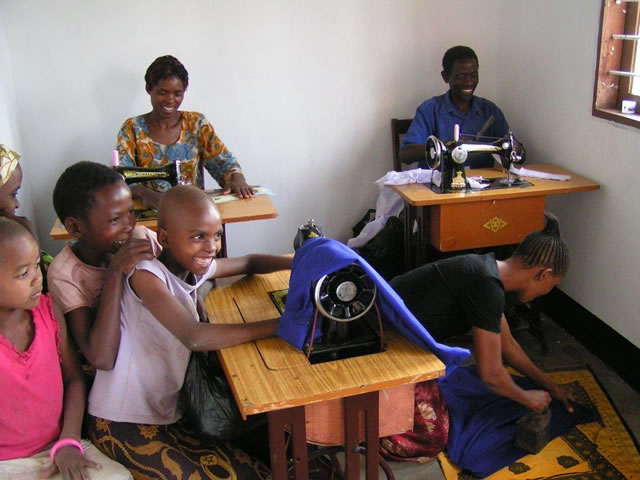
The rear room is used mainly for meetings and the largest is used as an after school study area, although occasionally pre-school children attend during the week and Sunday school uses it every weekend.
Swahili study books, covering up to secondary level, have been provided and in 2012 we commissioned several tables and chairs to be made locally as the number using this room has risen rapidly. Some children began studying in the evening and sleeping overnight.
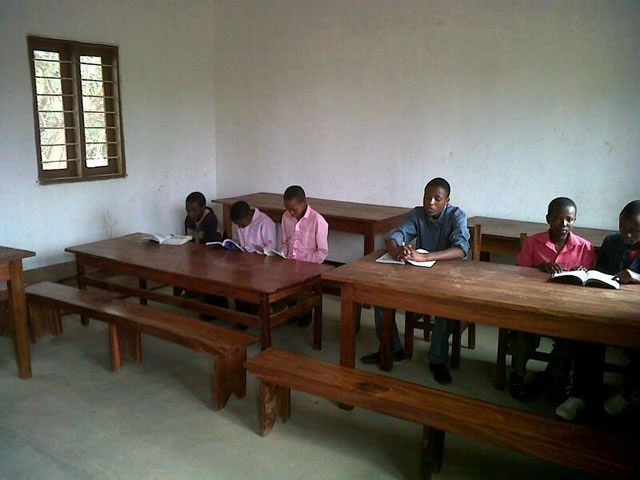
Here we see a small group studying during their summer holidays in August 2013. And below is a Sunday school lesson during the same period. We have been asked to supply solar power to this area as the children are currently using kerosene lamps or candles after sunset.
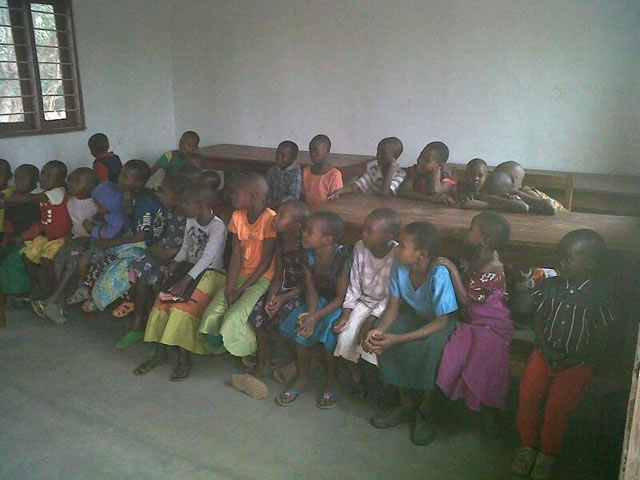
The original concept of the Community Building was that it should eventually be used for rain harvesting. During our visit in 2011 we sourced two 3000 litre tanks which were installed adjacent to the building by members of the community later that year.
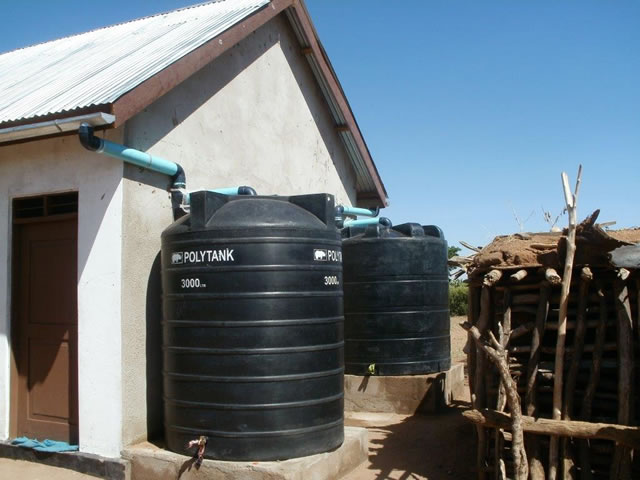
Rain harvesting has proved to be very successful over the past two rain seasons, 2011/2012 and 2012/2013. Although some of the components are suffering weather damage due to sunlight and dust particles during periods of high wind, in general the building and guttering is withstanding the elements. Water harvested lasts for three months after the final rains in April/May and is being used by families for cooking after being boiled and for washing. There is also scope to add another tank or overflow and this is something we'll be looking into during our next visit.
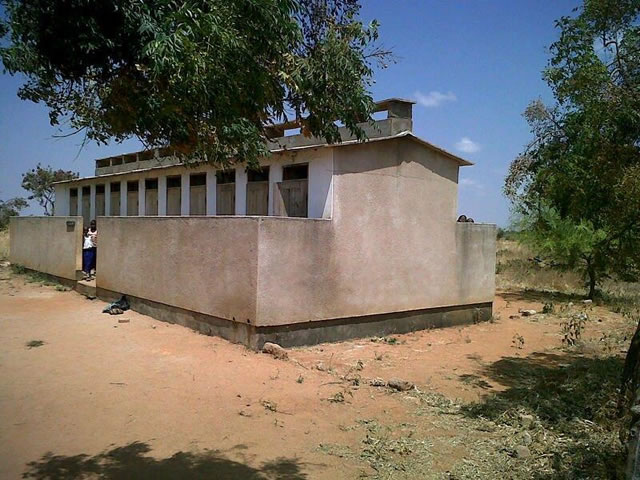
Pit latrines installed at Muhuvi School four years ago to replace the original outdated toilets have helped greatly as the population expands. They include a disabled toilet and separate girl's room which can be locked. This has enabled girls to attend school during their monthly cycle, when they would normally stay at home.
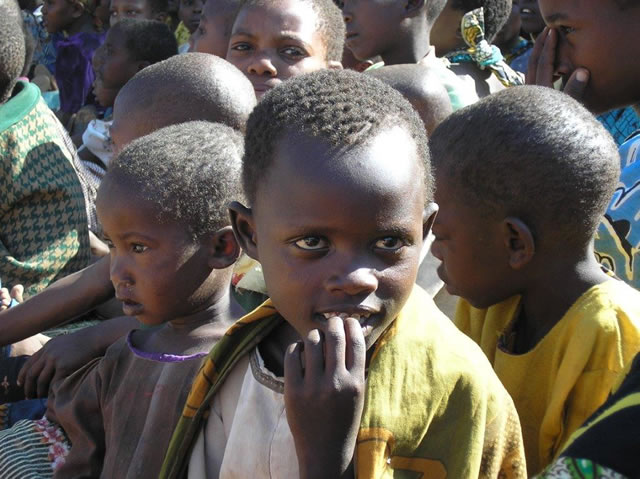
Anyone wishing to visit the village would be warmly welcomed. Richard and I are now considered members of the tribe.
Karibuni Sana, you're very welcome.
Thank you and Asante Sana on behalf of the community of Ughandi B.
Comments
Login to comment!